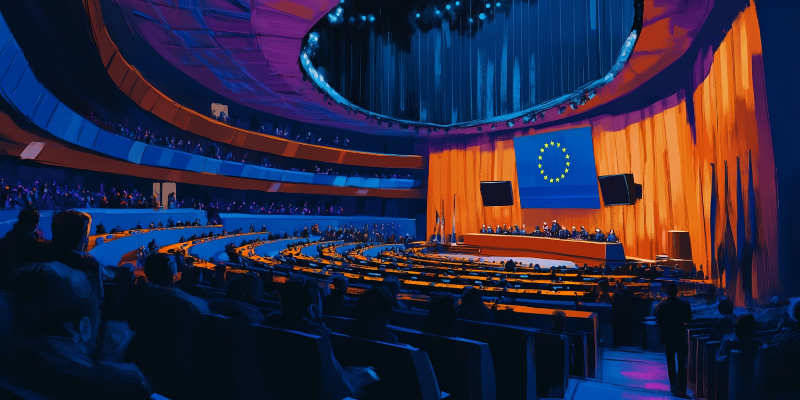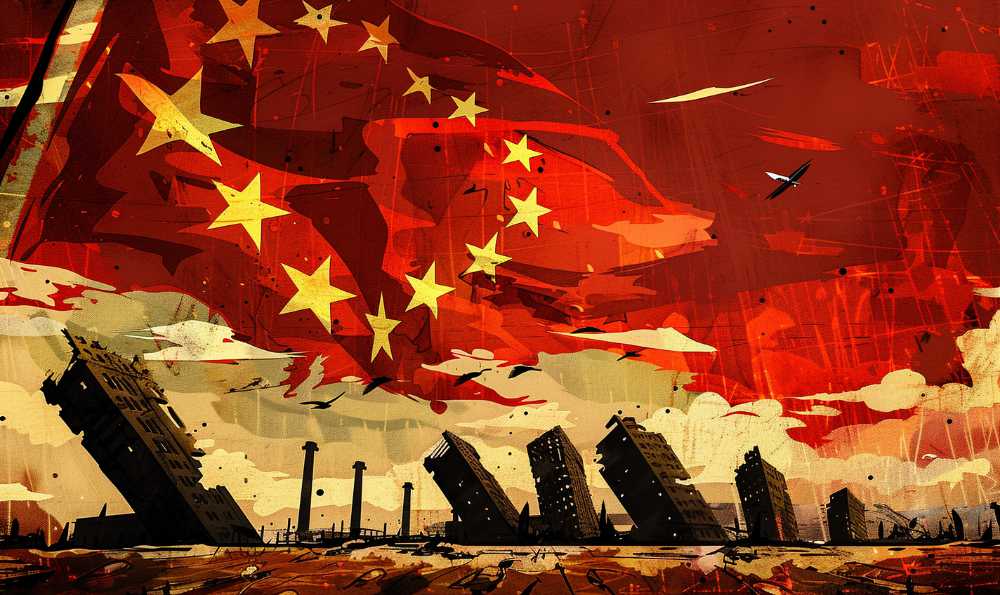From national sovereignty to Brussels decrees: the democratic illusion of the EU

The European Union presents itself as a bastion of democracy and the rule of law. Its institutions claim that laws are enforced objectively and that citizens have influence over policies through democratic processes. In reality, the EU is a bureaucratic entity where democratic principles are often subordinate to geopolitical and economic interests. The legislative process is dominated by unelected officials and legal interpretations that serve the power structures within the EU itself. The EU is not a genuine democracy but rather a technocracy where decisions are made by those who are neither directly elected nor held accountable by the people.
How EU Legislation Actually Works
Legislation Without Direct Democratic Legitimacy
Although the EU has a parliament, this body has little direct influence on legislation. The real legislative power lies with the European Commission, an unelected institution that proposes laws and plays a key role in implementing policies (Majone, 1998). The Council of the European Union, composed of ministers from member states, can approve or amend these laws, but their decision-making is often opaque and subject to political deals beyond public scrutiny (Hix, 2005). As a result, voters have limited influence through indirect mechanisms that barely shape the EU’s direction.
The process of passing laws is deliberately complex, preventing ordinary citizens from fully understanding or influencing policy decisions. Unlike in national democracies, where legislative bodies can be directly held accountable, the EU’s structure ensures that power remains in the hands of bureaucrats and political elites who are largely shielded from electoral consequences.
The European Parliament: A Toothless Tiger
The European Parliament is the only directly elected body within the EU, but it lacks the fundamental power that a parliament should have. It cannot initiate legislation and has only limited control over the European Commission (Crombez, 2003). In many cases, the parliament has only an advisory role, meaning democratic representation is merely an illusion. While citizens can vote for parliament members, these officials have little to no influence on actual policymaking. This is in stark contrast to national democracies, where parliaments hold real legislative power.
Moreover, the European Parliament is often used as a tool to rubber-stamp decisions already made by the Commission and Council. Even when MEPs oppose certain policies, these objections can be overridden by bureaucratic processes, rendering the entire electoral process meaningless. The illusion of representation is maintained to pacify voters while real power remains concentrated elsewhere.
The Role of the European Court of Justice: A Political Instrument
Political Jurisprudence Instead of Neutral Enforcement
The EU claims that laws are the highest authority and that the European Court of Justice (ECJ) issues objective rulings based on legal principles. In practice, however, the court functions as a tool to strengthen European integration. The ECJ interprets treaties and directives in a way that increases the power of EU institutions, often at the expense of national sovereignty (Weiler, 1999). This allows EU regulations to become increasingly binding, even when member states or citizens have democratically rejected them.
Instead of merely ensuring that laws are applied fairly, the ECJ actively participates in shaping EU policy through judicial activism. Its rulings frequently expand the reach of EU law, bypassing national governments and making it nearly impossible for member states to resist centralization efforts. This judicial overreach further erodes democracy by ensuring that decisions are made by unelected judges rather than by the people or their representatives.
Overruling National Legislation
The doctrine of the ‘primacy of EU law’ states that European legislation takes precedence over national laws, even against the will of the people (Craig & de Búrca, 2011). This means national parliaments and judges are forced to implement EU laws regardless of their consequences for their own legal systems. This undermines national democracies and places the EU above the will of individual member states, directly contradicting its claim of being based on democratic principles.
When national governments attempt to resist unpopular EU policies, they are often met with legal threats or financial penalties. Countries that attempt to implement their own policies, such as limiting migration or regulating their economies differently, are frequently overruled by Brussels. This coercive approach reveals that EU laws are not designed to serve the people but rather to enforce centralized control.
The Reality: A Technocratic Governance
The Influence of Lobbyists and Multinationals
Beyond the EU’s undemocratic structure, the influence of lobbyists and large corporations plays a key role in decision-making. Brussels is a hotspot for interest groups that shape legislation in favor of multinationals and financial institutions (Coen, 2007). As a result, laws are often drafted with corporate interests in mind, while the concerns of ordinary citizens remain secondary.
The EU’s regulatory environment is often dictated by corporate lobbyists who work closely with Commission officials to draft policies that benefit large businesses at the expense of smaller enterprises and consumers. This process ensures that EU legislation is not written with democratic accountability in mind but rather with economic and political elites as the primary beneficiaries.
European Legislation as a Tool for Centralization
Many policy decisions are made with the goal of centralizing more power in Brussels at the expense of national governments. The European Commission strategically uses crises to expand its influence, as seen during the financial crisis and the COVID-19 pandemic (Schimmelfennig, 2018). With arguments such as ‘European unity’ and ‘necessary harmonization,’ more and more competencies are transferred to EU institutions without direct democratic oversight.
During financial crises, the EU has imposed austerity measures on struggling nations, overriding the will of their elected governments. Similarly, under the guise of ‘climate policy’ and ‘public health,’ the EU has created extensive regulatory frameworks that limit national governments’ ability to act independently. These maneuvers demonstrate that the EU’s goal is not cooperation among sovereign nations but rather centralized control under Brussels.
Conclusion
The claim that the EU is a democratic union where law is the highest authority does not hold up under scrutiny. In reality, the EU is a technocratic entity where power is concentrated among unelected bureaucrats, and legislation is often used as a political tool. National democracies are increasingly eroded, while citizens have little to no influence over the policies that directly affect them. An honest discussion about the structural shortcomings of the EU is necessary to reveal the true nature of the European Union.


















